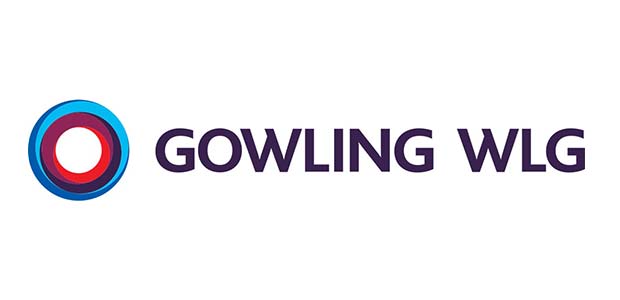Insider Story… Interim change management. This ‘Insiders Story’ blog from 2018 discussing change management and the role interim’s play. For this blog, I met with Michelle Wenham, Head of HR, and Feona Veys, Senior Manager – Talent Sourcing. Both fabulous women work for The Gambling Commission and started their journey as contractors. They have been instrumental in leading and delivering truly innovative change, which has transformed the people and culture within the organisation.
The Gambling Commission is no ordinary organisation. Over the next five years, they have five priority areas: empowering and protecting consumers; raising standards across all gambling sectors; building partnerships and understanding; ensuring fair play on the National Lottery and improving regulation.
Both Michelle and Feona joined the Gambling Commission in an interim capacity to oversee change management. They became so immersed in the business and culture, that they subsequently felt empowered by the organisation’s mission and took on permanent roles.
The transformation
After joining the Gambling Commission in 2015, Michelle was shortly followed by a new CEO which naturally brought about some change.
There was a lot of discussion around the employee engagement survey. The 2015 results could have been better, so areas to be improved were identified which could have a real positive impact.
In 2012, the Commission had embarked upon a similar change programme. However, after struggling to demonstrate the burning platform for the change, they decided to use the employee engagement survey as the catalyst.
Michelle explained, ‘from a change perspective, the outcome we wanted to achieve was similar to the previous change programme. Sometimes it isn’t the right time to deliver the change. It was like the stars aligned and with the right communication and the right people involved, we knew it could be a success.’
From this, they developed a new people strategy and discussed the kind of organisation they wanted to be. One that takes care of its employees and exceeds expectations in delivery.
How have you done it?
Previous change programmes had felt ‘parent and child’ and hadn’t always successfully maintained engagement or momentum.
The new CEO really transformed the feel of change within the Commission. She took people with her on the journey. One of the key things that she did was made herself visible. She was a role model for visibility, for the business and the senior leadership team.
They also implemented a change champion network across the business. This was a cross-functional network of employees, which meant that they were able to reach out to and engage with employees who otherwise may have got lost along the way.
Unlike many businesses, the Gambling Commission have a Board of Commissioners alongside their leaders. They have been a great support with change management.
Michelle says, ‘The Commissioners are so engaged, they challenge us and have been really involved in how we use our investment and resources to get the best out of our people.’
Engagement is everything
The culture within the Commission is really transforming into a truly engaging and inclusive one. This has already had a positive impact on performance and personal development.
HR has a seat at the table. Historically, L&D was always seen as an add-on, but is now included as part of all functions resource planning. A day every month is allocated to every employees’ personal development.
‘L&D Week’ was also a big win. Employees had 50% of their working hours dedicated to their own personal development and they also held department roadshows.
The Gambling Commission is a programme led business, which at times can leave functions at risk of becoming very insular. Department roadshows allowed employees to understand other functions and their importance within the business.
Michelle and Feona both believe that small things make a big statement. Basic things like providing staff with fresh fruit and a wide variety of refreshments, alongside communal kitchens and break-out areas, has enabled them to further develop cross-functional relationships.
They also held their employee conference in their offices instead of off-site. Michelle said, ‘we wanted to show that you don’t go somewhere else to talk about change then come back and forget about it – the real change happens right here.’
It isn’t all about HR
And the people strategy is a perfect example of this. The HR team constantly keep it under review to ensure they are delivering what has been promised. When they successfully meet those promises, they make sure that this is shared across the business, developing a feeling of trust and raised the profile of the function.
The team also launched 24 new policies across 2015 and 2016. They rebranded these as people policies to demonstrate that the organisation should be owning these policies, rather than HR. This resulted in them gaining constructive feedback from employees around their policies, enabling them to be more inclusive.
‘Ideas don’t have to be perfect in order to roll them out’
And I couldn’t agree more! What the Gambling Commission do really well is that they are totally honest about this and adopt the approach of ‘we are going to try this and see how it goes.’
They re-launched their spotlight recognition scheme, to recognise great behaviours on an on-going basis. Historically, this hadn’t gained much traction with employees, so they decided to make some changes in order to make it a more successful endeavour.
The Commission quadrupled the value of vouchers offered, changed the nomination process and included awards for teams as well as individuals. When re-launching they decided to review on an ongoing basis, to measure the success and take on feedback and suggestions from individuals and constantly improve the success of this scheme.
‘Interims have really helped to drive change’
At the Gambling Commission, they have used interims in two different ways. Firstly, they have hired career interims to act as subject matter experts and be slightly more heavy hitting. In areas such as reward, communications, HRIS and PMO.
Secondly, they have hired interims in a flexible way, before employing them to fill permanent roles. This gives the opportunity for the interim to engage with their overall offering.
Feona said ‘HR have really led the way in what good looks like when hiring an interim. We have demonstrated to the rest of the business how to effectively use interims and how flexible you can be with this approach.’
And Feona knows this first hand because, as Michelle admits, they wouldn’t have been able to secure Feona’s skillset on a permanent basis without the flexibility and proposition they have. When Feona joined as an interim, she was offered the opportunity to work 3 days a week around her clients. Michelle trusted her implicitly to do a great job.
In their PMO department, interims have helped them to think about ‘the art of the possible’. They have shared knowledge and brought ideas which the commission have been able to ‘borrow with pride’ and customise for their own needs.
‘I felt the change overnight’
Michelle and Feona both joined the Commission as interims and admit their mindsets have totally changed since taking on permanent contracts.
Feona said, ‘as an interim you definitely get less involved in the politics. You get paid to do a good job and you want to prove that you’re worth your day rate’.
Michelle also admits that she believes something is definitely different psychologically. As an interim, you simply feel different. When she signed the permanent contract, she felt the change overnight. On an interim contract, there is an end date and there are end goals, in a permanent role it isn’t so definitive.
That being said, interim isn’t for everyone, just as permanent employment isn’t. Both Michelle and Feona have gone back and forth depending on their own personal circumstances.
Michelle said, ‘I don’t understand why you wouldn’t want to get the best person possible, if that means being flexible and creative then you do that. Having an interim minimises risk to the business – if it doesn’t work out, the contract ends.’
As we drew the discussion to a close, we discussed if there is such a thing as becoming ‘change-weary’.
Feona and Michelle both agree that a business can get ‘big change weary’. Big change is great, but you should always give timescales and allow time for change to settle, or employees can get change fatigue. Continuous improvement and development is part of life and change management is so important in any organisation.
So where has this left the Gambling Commission?
The change programme has been embedded with great success! The engagement scores have increased from 55 to 64, with leadership and change increasing by almost 30%.
They have shown that if you develop your people and culture in the right way, change becomes so natural that you don’t realise it’s happening.
They have also proved that by attracting, developing and engaging people in the right way, anything is possible.
A huge thank you to Michelle and Feona for their input with this blog.
If you would like to learn more about the Gambling Commission and what it is like to work for them, then visit their website here.
James Cumming is our MD and leads our HR practice. He has recruited senior HR professionals for over 15 years and has experience in finding niche HR talent. Connect with him on LinkedIn here.
If you would like to find out more about re:find and how we can support you and your business, then please get in touch.









